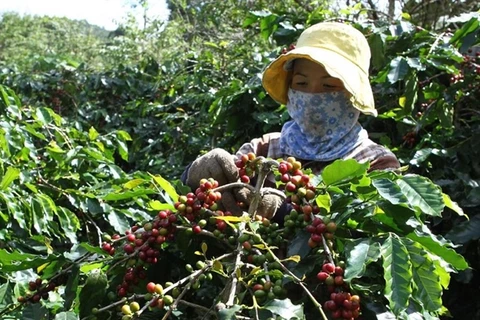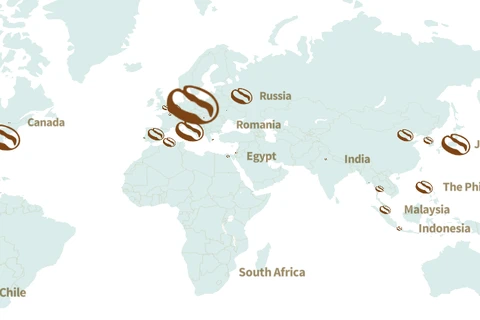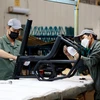 A cup of coffee placed next to coffee beans (Illustrative photo: The Ministry of Industry and Trade)
A cup of coffee placed next to coffee beans (Illustrative photo: The Ministry of Industry and Trade) Vietnam is now the second largest coffee supplier for Japan.
It is noteworthy that Japan’s coffee import from Brazil and Vietnam increased in 2021 but declines were seen in that from other key suppliers.
Statistics showed that Japan purchased about 101,000 tonnes of coffee from Vietnam in 2021, up 0.2 percent in volume and 7.7 percent in value from the previous year.
The share of Vietnamese coffee in Japan saw a slight drop to 24.62 percent last year from 25.25 percent in 2020.
Coffee consumption in the East Asian nation is projected to rise in the coming time, after a downward trend in imports triggered by the COVID-19 pandemic in the past two years.
Vietnam shipped 293,000 tonnes of coffee abroad in the first two months of 2022, raking in 674 million USD and posting a year-on-year expansion of 3.4 percent in volume and 35.6 percent in value.
Of note, export of robusta coffee to Germany, Belgium and the UK witnessed remarkable growth rate.
Experts said that Vietnam and Japan are both signatories of three major FTAs (the Vietnam-Japan Economic Partnership Agreement - VJEPA, the ASEAN – Japan Comprehensive Econpmic Partnership - AJCEP, and the Comprehensive and Progressive Agreement for Trans-Pacific Partnership – CPTPP), which opens up chances and favourable conditions for the countries to strengthen bilateral trade cooperation in various fields, especially as they have complementary trade structures.
Vietnamese firms are advised to pay due attention to product quality and technical standards of this stringent market, as well as consumer tastes, product pricing and specifications./.
VNA























